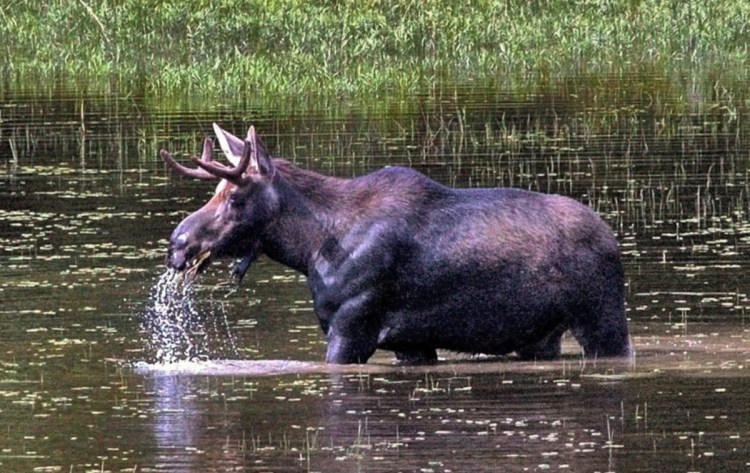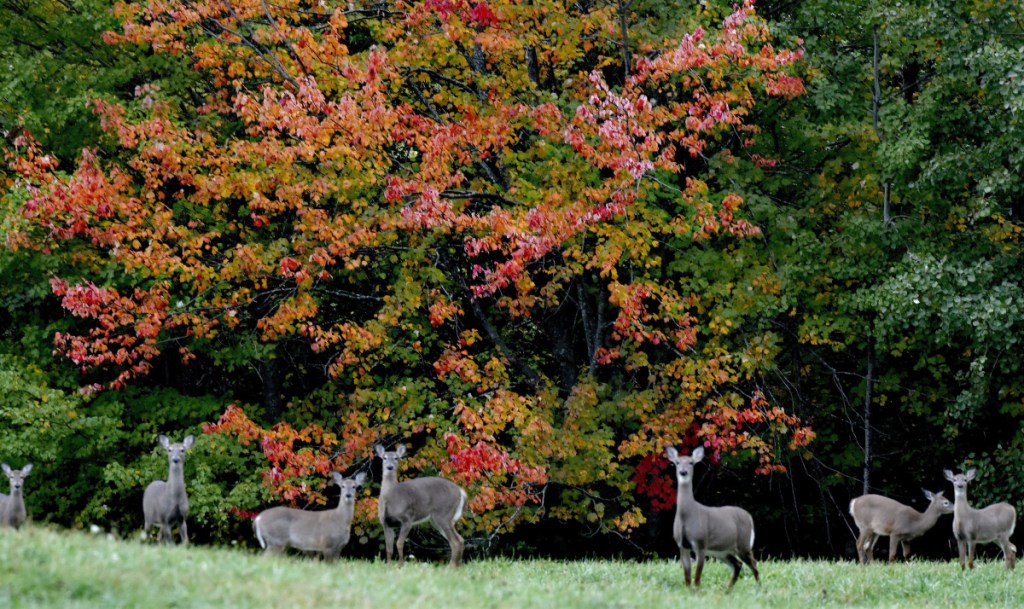Maine wildlife regulators Thursday enacted emergency rules to protect Maine’s moose and deer herds from a dangerous disease that has been discovered in neighboring Canada.
Chronic wasting disease is an always fatal neurological disease and it has been found in Quebec, which has a long border with Maine. The disease could devastate deer and moose populations if left unchecked, Maine Department of Inland Fisheries and Wildlife Commissioner Chandler Woodcock said.
Woodcock’s department said it’s now illegal to bring deer and moose carcasses into Maine unless a strict set of guidelines is followed. Maine officials also are urging hunters to take precautions, such as reporting deer that appear sick or weak to the wildlife department so the animal can be tested.
“Chronic wasting disease is the most serious threat facing our deer and moose populations in modern times,” Woodcock said, adding that the disease could “ravage Maine’s hunting and wildlife economy.”
Chronic wasting disease, or CWD, is caused by a protein called a prion that causes lesions in the brain. Animals spread it through bodily fluids via direct contact or through dirt, water or food.
The disease isn’t known to affect humans, but the U.S. Centers for Disease Control and Prevention says on its website that experimental studies “raise the concern that CWD may pose a risk to people” and suggest it’s a good idea to prevent human exposure.
Maine is currently free of CWD, as are New Hampshire and Vermont, which have also worked to deter the disease. The restrictions will require hunters to adapt, but it’s worth it to try to keep the disease at bay, said David Trahan, executive director of the Sportsman’s Alliance of Maine.
“As a hunter and a conservationist, the most important thing to us is keeping the resource preserved in a responsible way,” he said. “We don’t want this to come to Maine. At this point we have to be supportive of what the department has done.”
Send questions/comments to the editors.



